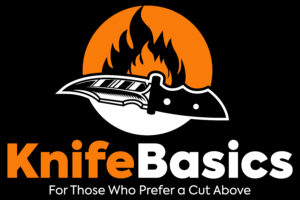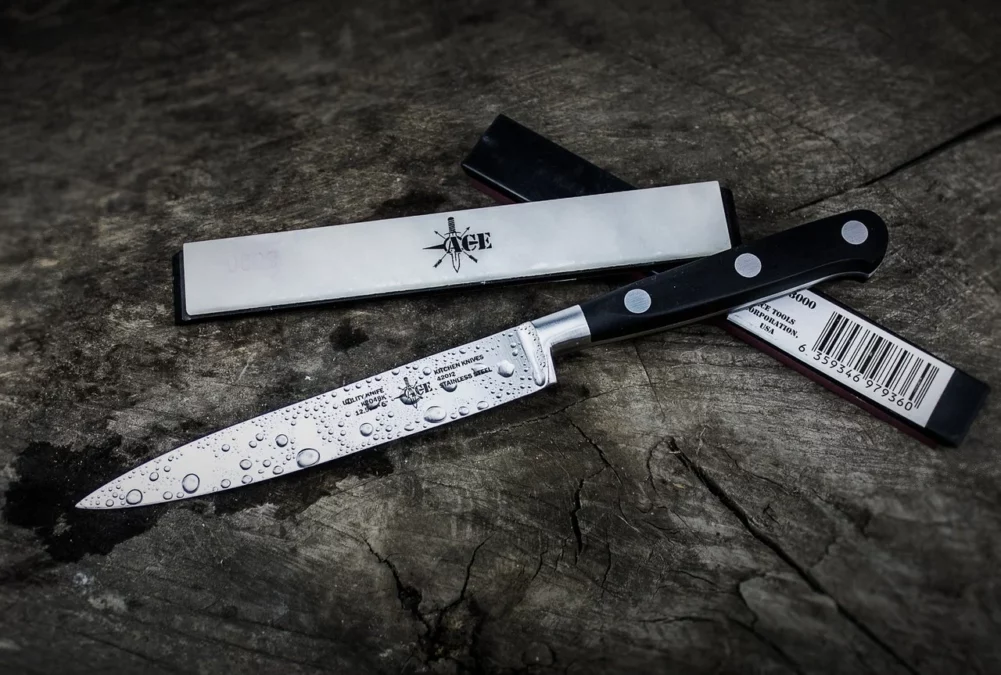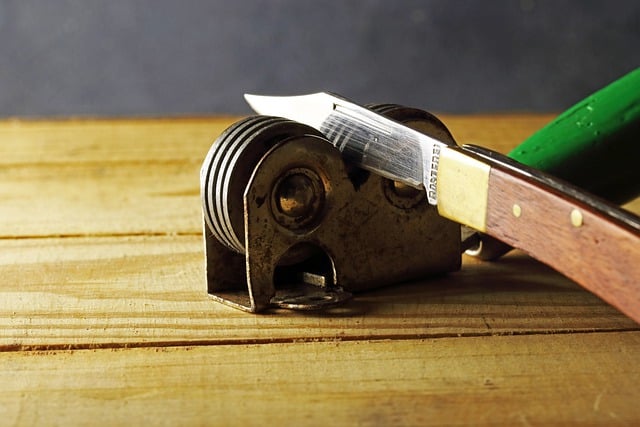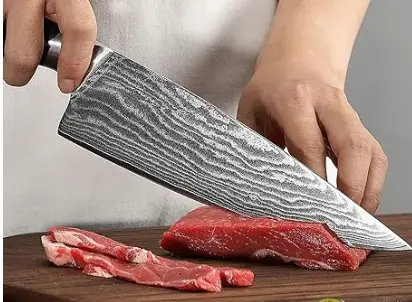What is 420J2 steel?
420J2 steel is used to make surgical knives, diving knives, barber or hairdresser shears, and budget knives for both outdoor and kitchen use. Initially, 420J2 stainless steel was not supposed to make blades, but with time, knife makers discovered it because it was affordable.
There is an assumption that it is tool steel because it is used to make surgical tools. However, 420J2 is only used to make surgical equipment because it has high corrosion resistance and is easy to work with.
420J2 Steel Composition
| Element | Percentage composition | Function |
|---|---|---|
| Carbon C | 0.15%-0.36% | Increases edge retention, hardness, and tensile strength. It also improves steel resistance to wear, abrasion, and corrosion. |
| Chromium Cr | 12.00%-14.00% | The formation of Chromium carbide Increases the hardness, tensile strength, and corrosion resistance of the blade. |
| Nickel Ni | 1.00% | Adds Toughness to the blade, it also improves the corrosion resistance and oxidation at elevated temperatures |
| Manganese Mn | 1.00% | Improves the strength and hardness of steel. When the steel is heat-treated, hardenability is improved with increased manganese. |
| Silicon Si | 1.00% | Increases strength and heat resistance. |
| Sulfur S | 0.03% | Improves machinability but is regarded as an impurity in high quantities. |
| Phosphorus P | 0.04% | Improves machinability and hardness, but is regarded as an impurity in high quantities. |
420J2 Stainless Steel Properties
420J2 Steel Hardness
Because of the low carbon content in its composition, 420J2 is not hard steel, It records a maximum Rockwell hardness of 56 HRC with proper heat treatment. Compared to other steels in the 400 series, 420J2 has the lowest hardness making it very cheap.
420J2 Edge retention
420J2 steel performs poorly in edge retention because of the low carbon content in its composition. However, there are poorer steels in edge retention on the market, so do not assume that you are buying the poorest knife.
Since it becomes dull very fast, harm yourself with the right sharpening tools and prepare your mind for frequent knife sharpening.
420J2 Steel Toughness
Steel can either offer you incredible hardness or toughness. With the steel of the day, it offers admirable toughness because of its low hardness. You can be sure that knives made from 420J2 steel will never chip or break when subjected to the pressure of hard applications.
420J2 Steel Corrosion resistance
420J2 is stainless steel, it offers excellent corrosion resistance because of the high levels of chromium in its composition. If you are on the market for a knife to use in corrosive conditions, 420 J2 steel knives will never disappoint you.
It is because of the high corrosion resistance that Japanese steel 420J2 is used in the manufacture of surgical and dive knives used in highly corrosive environments.
Sharpening 420J2 Steel
Stainless steel 420J2 is soft steel; hence sharpening it is easy. It gets sharp as fast as it loses its edge. Maintaining knives made from this steel is easy because you do not have to spend a lot of time and effort attaining an edge that will be lost quickly.
420J2 Machinability
420j2 steel is easy to mold and work on than other steels in the 400 series. A rule of thumb in steel is that you can only get a tough blade if it was easy to mold, which is true with 420J2.
With easy machinability and affordability, 420J2 steel remains the first option for knife makers targeting low-end blades with excellent corrosion resitance.
420J2 steel equivalent
420J2 steel equivalent is Chinese 30Cr13 stainless steel, they both offer the same level of performance in terms of corrosion resistance, toughness, and edge retention. The chemical composition of 420 J2 steel and 30Cr13 steel are highly similar too.
420J2 vs 440C
Grade 440C steel contains higher amounts of carbon, giving it more hardness and better edge retention. On the other hand, being soft steel, 420 J2 steel gives more hardness and better corrosion resistance than 440C.
420J2 steel vs VG10
VG10 Steel is widely known for its easy machinability, but it cannot beat the machinability of 420J2 which does not come with high hardness. Both steels make beautiful blades, but VG10 is more expensive. Knifemakers who prefer easier metals to work on should lean more on 420J2.
VG10 steel offers higher Rockwell hardness than 420J2 Japanese steel, this in turn translates to better edge retention and wear resistance of VG 10 knives compared to 420J2 knives.
420J2 stainless steel offers better corrosion resistance than VG10 stainless steel. The corrosion resistance of 420 J2 steel is unmatched by most stainless steel, it is used in dive knives and surgical tools.



